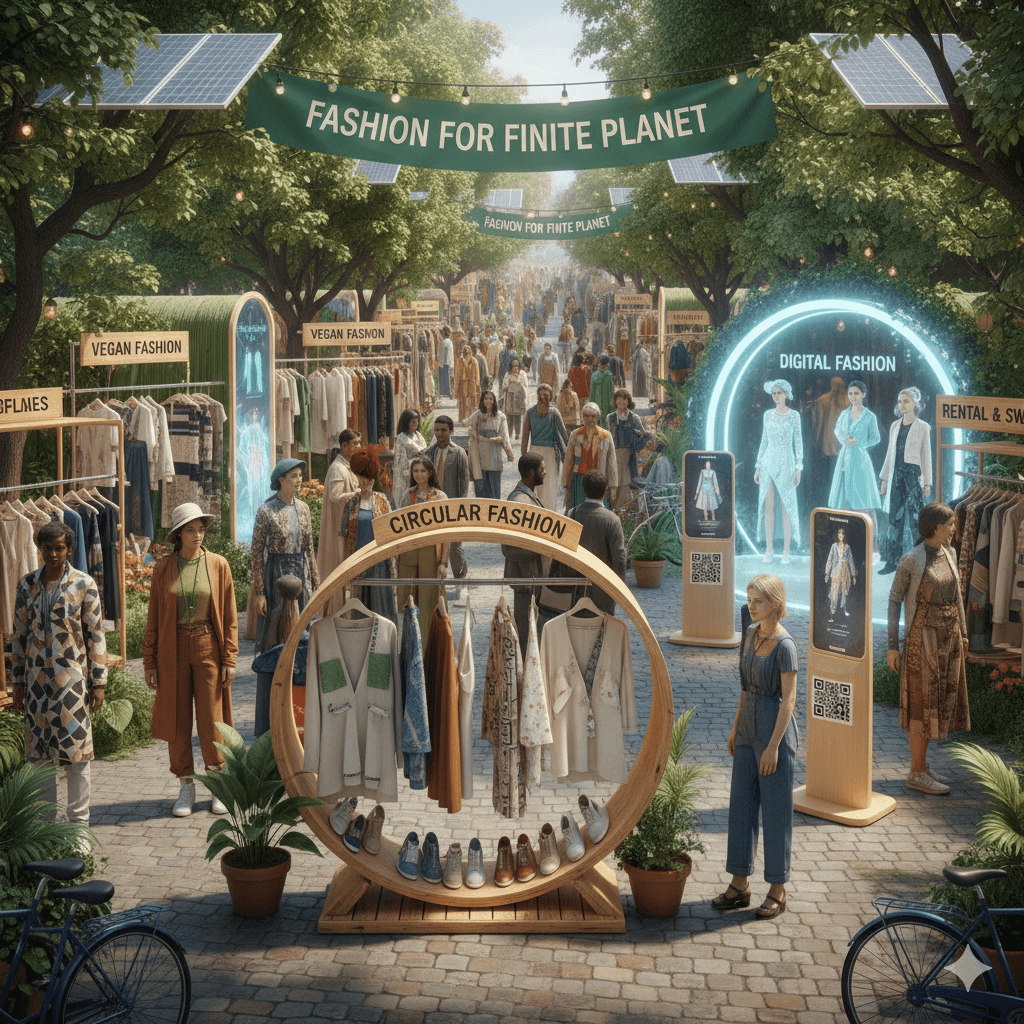7 Shoes That Match Your Outfit Perfectly, Chosen by AI
Benefits of AI in eCommerce: What to Know


Human behavior is not as rational as we’d like to believe—it’s driven by emotion, bias, and context. Right?
AI encapsulates this essence in ecommerce and leverages deep psychological triggers to influence purchasing decisions. As you scroll through your favorite online shopping platform, every recommendation you see is the culmination of advanced algorithms and insights into human behavior.
In this blog, we will understand the psychology behind these AI-driven suggestions -considered among the top benefits of AI in ecommerce, explore how emotional triggers, cognitive biases, and personalized interactions combine to shape what you buy.
Psychology Behind AI Powered Shopping

At the heart of many AI shopping recommendations are emotional triggers. Data from Chadix indicates that up to 70% of U.S. consumers have experienced strong emotional influences from AI recommendations. Emotions such as excitement, fear of missing out (FOMO), and guilt play crucial roles in nudging consumers toward a purchase decision. For example, an alert that a popular product is nearly sold out can spark urgency, making you more likely to buy—even if you were previously undecided. This interplay between AI and your emotions transforms routine browsing into an emotionally engaging experience.
Psychological Benefits of AI in eCommerce
1. Reduced Cognitive Load: Simplifying Decision-Making
One of the biggest psychological benefits AI brings to buyers is the reduction of cognitive overload. Traditional online shopping often overwhelms consumers with a sea of products, options, and confusing filters, leading to decision fatigue—a state where the brain’s ability to process and evaluate choices is impaired.
AI-powered recommendation engines, search algorithms, and virtual assistants help filter the noise by presenting only the most relevant products based on past behavior, preferences, and real-time context. This personalized curation streamlines decision-making, allowing consumers to focus on a refined selection instead of an endless catalog.
- Why this matters: When cognitive load decreases, shoppers feel less stressed and more confident in their purchases, increasing satisfaction and reducing returns due to impulse buys or buyer’s remorse.
2. Enhanced Sense of Control and Agency
Contrary to fears that AI might make shopping feel robotic or impersonal, well-designed AI systems actually enhance consumers’ sense of control. Dynamic interfaces that adapt in real-time—such as adjustable filters, AI chatbots that clarify doubts instantly, and personalized dashboards—allow users to tailor the shopping journey to their needs.
Moreover, AI tools like virtual try-ons or AR-powered visualizations empower shoppers to “test” products digitally, bridging the gap between physical and online retail.
- Why this matters: Feeling in control during the shopping process triggers a psychological state of autonomy and empowerment, which is closely linked to higher engagement and brand loyalty.
3. Boosted Confidence through Social Proof and Trust Signals
AI plays a crucial role in analyzing massive datasets, including customer reviews, ratings, and social media sentiments, to highlight the most credible and relevant social proof. By surfacing authentic testimonials or personalized success stories, AI helps buyers overcome uncertainty—one of the biggest psychological barriers in online shopping.
Further, AI-driven fraud detection and secure payment verifications reassure consumers that their transactions and data are safe, addressing subconscious fears about privacy and security.
- Why this matters: Trust is foundational in eCommerce. When AI enhances trust signals and reduces perceived risk, consumers are more likely to complete purchases and develop a lasting emotional connection with the brand.
4. Satisfaction from Hyper-Personalization
One of AI’s defining psychological impacts is the feeling of being “seen” and understood as an individual rather than just a data point. Hyper-personalized product recommendations, offers tailored to past purchases, and customized content create a sense of intimacy in the digital shopping environment.
This phenomenon, sometimes called the “personalization paradox,” means that when AI recommendations align perfectly with consumer tastes and preferences, it triggers dopamine release—a biochemical reward reinforcing positive emotions tied to the brand.
- Why this matters: Emotional satisfaction drives repeat buying behavior. AI’s ability to deliver personalized experiences builds emotional loyalty and turns casual shoppers into brand advocates.
5. Reducing Anxiety through Instant Gratification and Support
AI-powered chatbots, voice assistants, and instant messaging provide immediate answers to customer queries—removing waiting time and uncertainty. Whether it’s tracking an order, clarifying product details, or handling returns, this 24/7 support addresses buyer anxiety effectively.
The psychological concept of instant gratification is increasingly relevant in the digital age. Shoppers expect fast resolutions, and AI’s ability to meet these expectations lowers frustration and abandonment rates.
- Why this matters: Reducing anxiety and providing quick solutions enhances overall shopping satisfaction and creates a smoother journey that encourages future engagement.
6. Encouraging Exploration and Discovery
AI’s role isn’t just to streamline and narrow choices—it also encourages discovery. By analyzing nuanced patterns, AI can suggest unexpected products or styles that expand consumer horizons beyond their usual shopping habits.
For example, AI-driven visual search and style recommendation engines help shoppers explore new categories effortlessly. This ability to discover fosters curiosity, pleasure, and novelty, which are powerful psychological drivers of consumer behavior.
- Why this matters: Discovery nurtures positive emotional experiences, increasing the perceived value of the platform and the likelihood of impulse or exploratory purchases.
7. Building Long-Term Relationship through Predictive Engagement
AI goes beyond reactive service—it anticipates customer needs by analyzing data trends and purchase cycles. Predictive analytics enable eCommerce businesses to engage consumers proactively with timely reminders, replenishment alerts, or occasion-based offers.
This forward-thinking approach mimics empathetic human interaction by anticipating desires before they are explicitly expressed, reinforcing a sense of being cared for and understood.
Why this matters: Predictive engagement nurtures brand intimacy and creates habitual buying patterns, contributing to lifetime customer value and reducing churn.
How These Psychological Benefits are Reshaping You as Buyers

All these psychological benefits collectively create a transformative buyer experience. They shift online shopping from a transactional activity to an emotionally rewarding journey that:
- Fosters trust and loyalty: AI builds confidence and reduces hesitation, which encourages deeper brand relationships.
- Elevates convenience without sacrificing control: Shoppers feel empowered, not overwhelmed, thanks to AI’s balance of automation and customization.
- Reinforces emotional connection: Personalization and timely engagement make buyers feel valued and understood, vital in an increasingly digital world.
However, the shift also presents challenges—over-reliance on AI risks creating “filter bubbles” where consumers miss out on diverse options, and constant personalization might raise privacy concerns. But you consumers don’t need to worry, as Glance AI brings to you a balanced approach of leveraging AI that knows you at a personnel level and shows you recommendations accordingly with the freedom to know how certain outfits will look on you though your personal AI twins.
Final Thoughts
AI is no longer just a tool behind the scenes; it’s an active participant in shaping the buyer’s psychological experience. By simplifying decisions, boosting confidence, fostering emotional connections, and anticipating needs, AI elevates the art of shopping to a science rooted in human psychology.
For eCommerce brands, the opportunity lies in harnessing these psychological benefits ethically and creatively—building experiences that feel less like algorithms and more like genuine, human-centric interactions. As AI technology matures, the future of eCommerce will be defined not just by efficiency but by how well it understands and respects the minds and hearts of buyers.
FAQs
- What are the benefits of AI in e-commerce
AI in e-commerce enhances customer experiences through personalized recommendations, automated support, and predictive product suggestions. It also streamlines operations like inventory management, demand forecasting, and pricing optimization. By combining personalization with operational efficiency, AI boosts engagement, reduces friction, and drives higher conversion rates and customer loyalty.
2. How does AI help with online shopping?
AI helps online shoppers by providing personalized product recommendations, guiding choices through chatbots and virtual assistants, predicting preferences, and streamlining the shopping journey. It enhances the experience with smarter search, dynamic pricing, and features like virtual try-ons, making browsing and buying faster, easier, and more tailored to individual needs.
3. How has AI changed e-commerce?
AI has transformed e-commerce by turning static catalogs into dynamic, data-driven platforms. It enables real-time personalization, automates customer service with chatbots, optimizes inventory and supply chains, and powers smarter marketing strategies and fraud detection, creating faster, more efficient, and highly personalized shopping experiences.
4. What is the scope of AI in eCommerce?
The scope of AI in eCommerce covers product discovery, visual and voice search, inventory and demand planning, fraud detection, and personalized marketing. It also enhances customer support through chatbots and virtual assistants, while emerging innovations like AI-powered styling and augmented reality experiences are shaping the future of online shopping.
5. What is the future of AI in eCommerce?
The future of AI in eCommerce will focus on hyper-personalized shopping, predictive logistics, and autonomous store experiences. AI will power voice commerce, intelligent virtual assistants, and emotionally aware customer interactions, helping retailers deliver seamless, efficient, and highly personalized shopping journeys.







